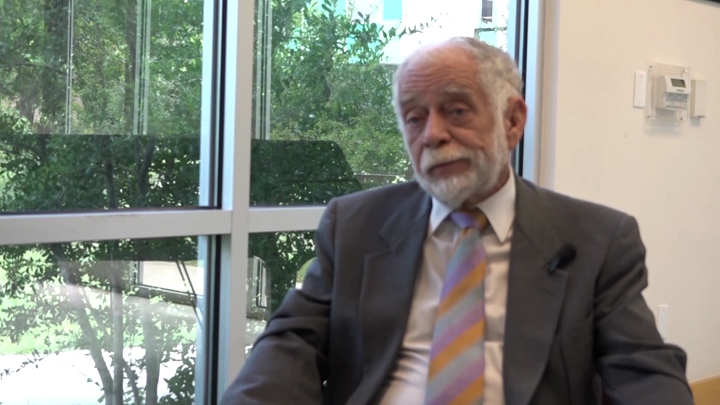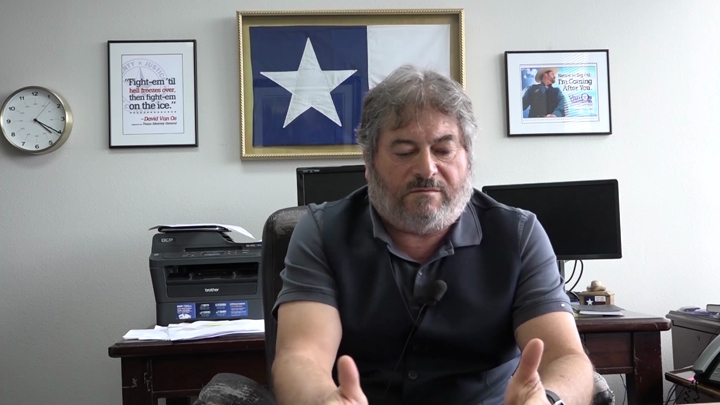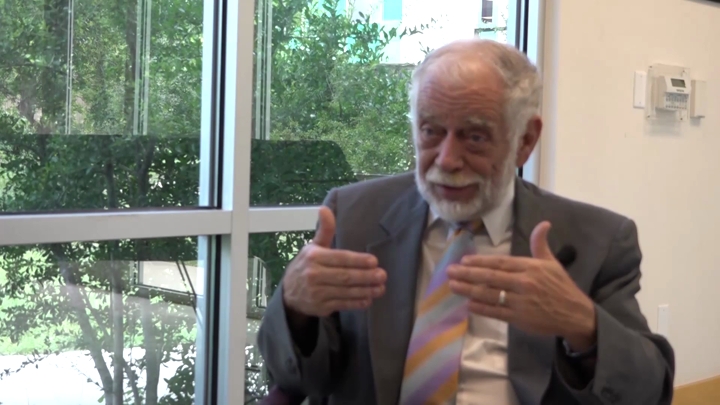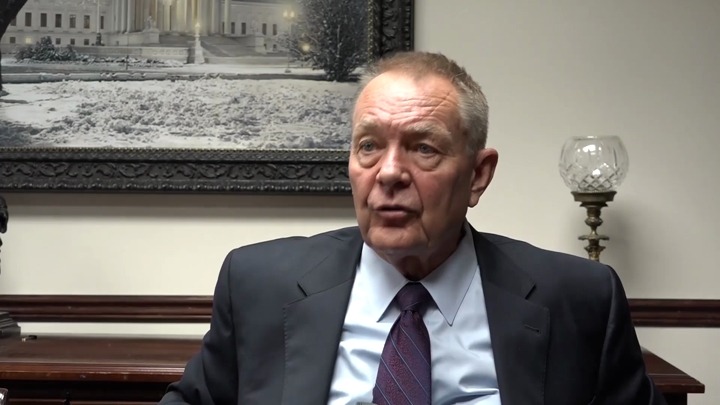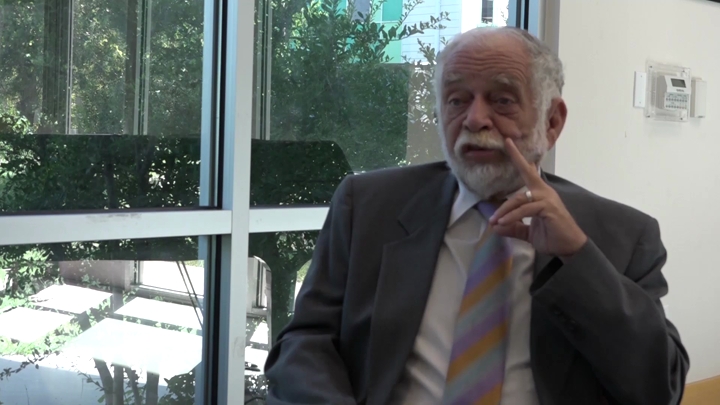Harrington / Starting the Texas Civil Rights Project
sign up or sign in to add/edit transcript
Arionus: Can you talk more about the rift between the TCO are you and where you went to after that? You said that community issues were more important to you did this week due to go and do your own thing? Harrington : Yes, and it wasn't by choice but it worked out well. There was this bizarre thing developing. You know the thing was at that time, in these cases that I’m doing, I am winning virtually every case because the courts hadn’t changed yet. They were still fairly moderate and progressive. We develop this thing on our board, and the TCLU board, we were doing more traditional stuff. What does that mean in this context? Then the guy that they had hired for, I was the legal director, they had hired this guy Guerra to be the executive director. He was from New York. So he comes here, his agenda was actually to become the national executive director of ACLU. So he spent all of our money here to promote himself. He made decisions that were not wise. We bought a building, he paid the asking price, for example and did not negotiate. He depleted all of our resources and then he left. So they had to hire a new executive director, a really nice guy Richard Evena, but Richard was not a fundraiser. He worked with the EEOC. So the board then laid him off and laid off his assistant. So there were only two of us left, myself and my assistant. And we said this is not a good sign. They are going to lay off the executive director, I am the legal director and I have to run the whole organization. Though I sent out a fundraiser letter and raise more money then they had ever done. We said fair enough but we need to form a union because otherwise we can see what’s coming. So we did. And a board went apoplectic. Totally apoplectic which was ironic because many people on the board were teachers and professors and members of unions. But for white liberals, you know they are protecting the workers you don’t have to deal with a union. So Farrah at that time goes off to have her baby and so they fire me and then do a press conference. The press say, “Was he doing a great job?” “Oh yeah, he was a great lawyer. He formed a union.” Of course it’s totally illegal to say that. So of course, my lawyer sued them and we had to go to mediation. As a result of the mediation, I took south Texas project under my wing. They gave me some law books I ended up using for press conferences. We don’t do use law books anymore we are all on Westlaw. And some cash but I don’t remember how much. And I have three spaces downtown in the Peace building with all these nefarious organizations. We had free space there, and then Farrah came back from having the baby so she is at the TCLU office. They fire her by fax, “You are fired Farrah.” Well that put her on unemployment. I got a job teaching part-time at the law school. So that carried us from September through December. And by January we got our first grant. Then we were off and running. Arionus: What year was this? Harrington : 1990. Arionus: And this is when you created the Texas civil rights? Harrington : Correct, our used the corporation I had started in the valley to channel the church money. Are used back to sponsor the Texas civil rights bill. Arionus: Seems like the corporation law you learned in law school helped? Harrington : No, you just fill out the form. Arionus: So in 1990 you founded the Texas civil rights project, what was the mission of this project as you see it? Harrington : I wanted to continue to do what we were doing-the community based civil rights work. To support organizing, whatever kind. We supported a lot of the organizing by the disability community. It is important to support organizing because it strengthens the effort and it also gives people the vehicle, self-confidence, to push the envelope further. For example, we worked very closely with the disability group in El Paso. To make El Paso more accessible. Of course that gives them power, strength, and visibility. And when it came time For the County commission to vote on how much public housing they would allocate to the disability community, under the statute there is a percentage I don’t remember whatever it was at a time. The disability community said no, we want to triple that, they wanted 20 percent. They got it because the commissioners knew that they were going to be dealing with a group that was organized. They had been very active and been doing litigation.
| Interview | Interview with Jim Harrington |
| Subjects | Work › Occupations |
| Work › Labor Unions | |
| Housing › Public Housing | |
| Community Organizations › Community outreach | |
| Education › Teachers and Administrators | |
| Court Cases | |
| Historic Periods › 1990s | |
| Ideology › Liberalism | |
| Medicine and Health › Disabilities | |
| Tags | Texas Civil Liberties Union |
| American Civil Liberties Union (ACLU) | |
| Texas Civil Rights Project | |
| sign up or sign in to add/edit tags | |
| Interview date | 2016-06-13 |
| Interview source | CRBB Summer 2016 |
| Interviewees | Harrington, Jim |
| Locations | Austin, TX |
| Duration | 00:06:56 |
| Citation | "Starting the Texas Civil Rights Project ," from Jim Harrington oral history interview with , June 13, 2016, Austin, Civil Rights in Black and Brown Interview Database, https://crbb.tcu.edu/clips/5506/starting-the-texas-civil-rights-project, accessed February 20, 2026 |


